Related Research Articles
The premiers and chief ministers of the Australian states and territories are the heads of the executive governments in the six states and two self-governing territories of Australia. They perform the same function at the state and territory level as the Prime Minister of Australia performs at the national level. The King of Australia and the state governors are the formal repositories of executive power; however, in practice they act only on the advice of state premiers and ministers except in extreme circumstances, such as a constitutional crisis.

Gary John Joseph Humphries is a Deputy President of the Administrative Appeals Tribunal. He was a member of the Australian Senate representing the Australian Capital Territory for the Liberal Party of Australia from 2003 to 2013. He was the Chief Minister of the Australian Capital Territory from 2000 to 2001; and was elected to the first parliament of the Australian Capital Territory, in 1989, later representing the Molonglo electorate until 2003.
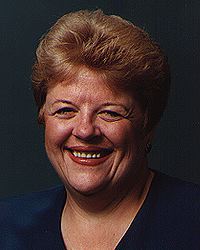
Annette Louise Ellis was an Australian politician who was a Labor Party member of the Australian House of Representatives from the Australian Capital Territory, from March 1996 to August 2010, representing the Division of Namadgi 1996–98 and the Division of Canberra 1998-2010.
The parliaments of the Australian states and territories are legislative bodies within the federal framework of the Commonwealth of Australia.
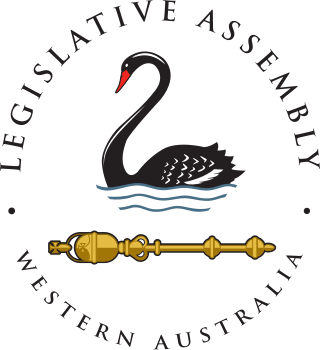
The Western Australian Legislative Assembly, or lower house, is one of the two chambers of the Parliament of Western Australia, an Australian state. The Parliament sits in Parliament House in the Western Australian capital, Perth.
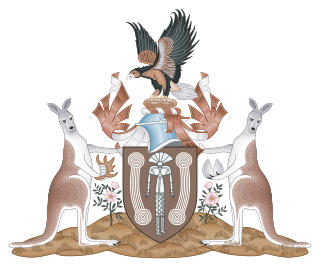
The Legislative Assembly of the Northern Territory is the unicameral legislature of the Northern Territory of Australia. The Legislative Assembly has 25 members, each elected in single-member electorates for four-year terms. The voting method for the Assembly is the full-preferential voting system, having previously been optional preferential voting. Elections are on the fourth Saturday in August of the fourth year after the previous election, but can be earlier in the event of a no confidence vote in the government. The most recent election for the Legislative Assembly was the 2020 election held on 22 August. The next election is scheduled for 24 August 2024.

The Legislative Assembly for the Australian Capital Territory is the unicameral legislature of the Australian Capital Territory (ACT). It sits in the Legislative Assembly Building on Civic Square, close to the centre of the city of Canberra.
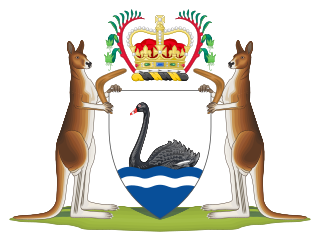
The Parliament of Western Australia is the bicameral legislature of the Australian state of Western Australia, which constitutes the legislative branch of the state's political system. The parliament consists of the King, the Legislative Council and the Legislative Assembly. The two Houses of Parliament sit in Parliament House in the state capital, Perth.
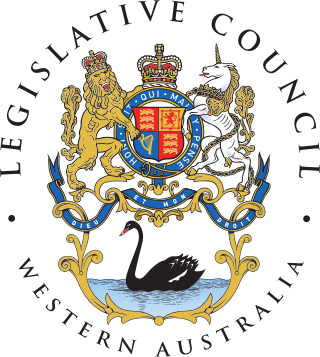
The Western Australian Legislative Council is the upper house of the Parliament of Western Australia, a state of Australia. It is regarded as a house of review for legislation passed by the Legislative Assembly, the lower house. The two Houses of Parliament sit in Parliament House in the state capital, Perth.
Residents Rally was an Australian political party, with four candidates elected to the first Australian Capital Territory Legislative Assembly at the 1989 Australian Capital Territory general election. Residents Rally were led by Canberra human rights barrister and lawyer, Bernard Collaery. Collaery defined the party as "a community-based urban green party". The Rally formed a coalition with the Liberal Party, led by Trevor Kaine, in late 1989. However, this fractious Alliance was to last for only two years before collapsing. The Rally was unsuccessful in retaining any seats at the 1992 ACT general election.
The Independents Group was a short-lived Australian political party operating in the Australian Capital Territory. They briefly served as part of the Alliance government, alongside the Liberal Party and Residents Rally.
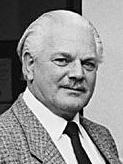
Trevor Thomas Kaine, was an Australian politician who served as Chief Minister of the Australian Capital Territory from 1989 to 1991. Kaine was elected into a multi-member single electorate in the unicameral Australian Capital Territory Legislative Assembly, from 1989 to 2001, initially as a member of the Liberal Party and later as an independent.

The 1989 Australian Capital Territory general election was held on 4 March 1989 to elect the 1st Australian Capital Territory Legislative Assembly. This was the first direct election by voters in the Australian Capital Territory (ACT) for their power legislative body.

The Government of the Australian Capital Territory, also referred to as the Australian Capital Territory Government or ACT Government, is the executive branch of the Australian Capital Territory, one of the territories of Australia. The leader of the party or coalition with the confidence of the Australian Capital Territory Legislative Assembly forms government. Unlike the Australian States and the Northern Territory, the Australian Capital Territory Legislative Assembly directly elects one of their number to be the Chief Minister of the Australian Capital Territory as the head of the Government, rather than being appointed by a Governor or Administrator.
Craig John Duby, former Australian politician, was a member of the unicameral Legislative Assembly of the Australian Capital Territory between 1989 and 1992, elected to the multi-member single constituency Assembly as a representative of the No Self-Government Party. During his term in office, Duby was a member of the Independents Group and the Hare-Clark Independence Party. Duby was the Minister for Finance and Urban Services and briefly was the Minister for Housing and Community Services in the Kaine ministry. For part of one day, he served as the Leader of the Opposition.
Dennis Ross Stevenson was an Australian politician. He was elected in the inaugural 1989 general election to serve in the Australian Capital Territory Legislative Assembly, on a platform of abolishing self-government in the Australian Capital Territory (ACT). Stevenson was re-elected at the 1992 general election and resigned from the ACT Legislative Assembly in 1995.
The No Self Government Party was a minor Australian Capital Territory political party that experienced limited success in the early years of the Australian Capital Territory Legislative Assembly. Like Dennis Stevenson's Abolish Self-Government Coalition, it opposed self-government for the ACT. In the first territory election in 1989, three members of the party Party were elected. None were still a member of the party by the 1992 election, by which time it had ceased to exist.
The ACT Labor Party, officially known as the Australian Labor Party (Australian Capital Territory Branch) and commonly referred to simply as ACT Labor, is the ACT branch of the Australian Labor Party (ALP). The branch is the current ruling party in the Capital Territory and is led by Andrew Barr, who has concurrently served as chief minister of the Australian Capital Territory since 2014. It is one of two major parties in the unicameral Australian Capital Territory Legislative Assembly, and is currently in a coalition with the ACT Greens.
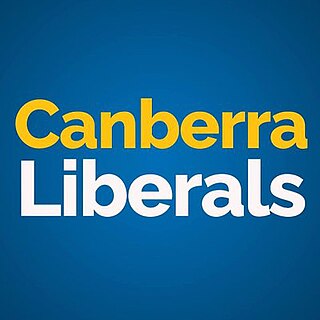
The Canberra Liberals, officially known as the Liberal Party of Australia, is the division of the Liberal Party of Australia in the Australian Capital Territory (ACT). The party has been in opposition in the ACT Legislative Assembly for much of its existence, but held power with the support of minor parties and independents between 1989 and 1991 and again between 1995 and 2001.

The 2024 Australian Capital Territory general election will be held on or before Saturday 19 October 2024 to elect all 25 members of the unicameral ACT Legislative Assembly.
References
- ↑ "Abolish Self Government Coalition". Australian Electoral Commission.